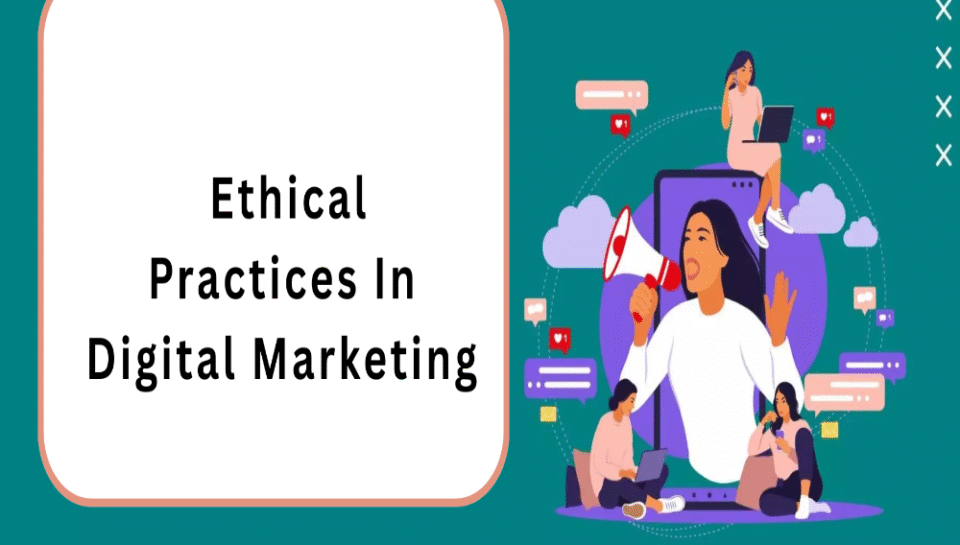
Introduction to ethical practices in digital marketing
Introduction
Ethical practices in digital marketing are increasingly important in a world where technology and data shape every consumer interaction. As businesses leverage advanced tools to reach audiences, the responsibility to operate transparently, honestly, and fairly becomes crucial. Ethical digital marketing ensures trust, loyalty, and long-term relationships by protecting user data, respecting consumer rights, and promoting truth in messaging. Companies that embrace ethics in their marketing strategies not only comply with regulations but also build a reputable brand in an environment where consumer scrutiny is higher than ever. In essence, ethics in digital marketing is about doing the right thing while delivering measurable results.
Transparency in data collection and usage
One of the pillars of ethical digital marketing is transparency in how data is collected, stored, and used. Marketers often gather user information through cookies, forms, and behavioral tracking. Ethical practices require that users be clearly informed about what data is being collected and how it will be used. Implementing clear privacy policies, cookie consent banners, and opt-in options demonstrates respect for user privacy and compliance with regulations like GDPR and CCPA.
Honest and non-deceptive advertising
Digital ads must avoid misleading claims, false scarcity tactics, or exaggerated benefits. Ethical advertising is rooted in honesty—ensuring that all claims are fact-based and products or services are represented accurately. For instance, displaying a “limited time offer” that remains unchanged for weeks misleads consumers. Ethical marketers avoid clickbait headlines and prioritize integrity in promotions, even if it means sacrificing short-term gains for long-term trust.
Consent-based email marketing
Email marketing must be permission-based to ensure ethical compliance. Sending unsolicited emails or purchasing email lists violates both legal guidelines and ethical norms. Ethical email practices involve obtaining clear consent before adding users to mailing lists and providing simple options to unsubscribe. Using personalization responsibly and respecting user preferences helps build meaningful engagement without intruding on user privacy.
Responsible use of retargeting and behavioral data
Behavioral targeting and retargeting are powerful digital tools, but ethical concerns arise when users feel watched or manipulated. Marketers must set clear boundaries on how frequently ads appear and what type of data they use. Ethical strategies involve respecting frequency caps, not targeting sensitive personal information, and offering users the ability to opt out of targeted advertising. Respect for user boundaries builds trust and reduces ad fatigue.
Accessibility and inclusive design
Ethical digital marketing considers the needs of all users, including those with disabilities. Websites, emails, and digital content should be accessible through proper use of alt text, keyboard navigation, and screen-reader compatibility. Inclusive design also ensures that content is culturally sensitive and avoids discriminatory language. An inclusive and accessible brand earns broader respect and loyalty by reflecting values of equity and fairness.
Authenticity in influencer and affiliate marketing
Collaborations with influencers and affiliates must maintain transparency and authenticity. Sponsored content should be clearly disclosed to the audience. Ethical marketing practices involve ensuring that influencers genuinely support the product and that their endorsements reflect honest opinions. Misleading endorsements or hidden sponsorships damage brand credibility and can trigger consumer backlash.
Avoidance of manipulation and dark patterns
Dark patterns are deceptive design practices intended to trick users into taking unintended actions—like subscribing to services or sharing more data than necessary. Ethical digital marketers avoid such practices by using honest UI/UX design, providing clear opt-out options, and being upfront about costs and commitments. Transparency in interface design promotes a user-first approach and reinforces brand integrity.
Compliance with advertising and platform policies
Each advertising platform—Google, Facebook, LinkedIn—has strict policies regarding what types of content can be promoted. Ethical digital marketers ensure all campaigns comply with these rules. This includes restrictions around health claims, financial advice, adult content, and more. Staying compliant not only avoids penalties and bans but also aligns brand activities with broader industry standards and expectations.
Environmental and social responsibility in messaging
Ethical marketing also reflects a commitment to social and environmental causes. Brands that promote sustainability, inclusion, and ethical sourcing must align their digital campaigns with these values. Greenwashing—falsely claiming environmental benefits—is unethical and risks reputational damage. Ethical marketers ensure that cause-based messages are supported by real actions, not just words, reinforcing brand authenticity.
Conclusion
Ethical practices in digital marketing are not optional—they are essential for building sustainable brands and fostering genuine customer relationships. In an age of digital transparency and regulatory scrutiny, businesses that uphold ethics in advertising, data handling, content creation, and communication earn consumer trust and loyalty. Adopting ethical strategies may require more thought and effort, but the rewards include a more loyal audience, reduced legal risks, and a reputation for integrity. Ultimately, ethical digital marketing is the pathway to long-term success in a connected and conscientious world.
Hashtags
#ethicalmarketing #digitalethics #dataprivacy #transparencymarketing #honestadvertising #emailconsent #fairmarketing #inclusivecontent #accessibledesign #retargetingethics #ethicaladvertising #trustbuilding #digitalcompliance #influencerethics #affiliatehonesty #nomanipulation #darkpatterns #socialresponsibility #greenmarketing #consumerrespect #truthinadvertising #ethicalseo #marketingstandards #digitalintegrity #responsiblemarketing





